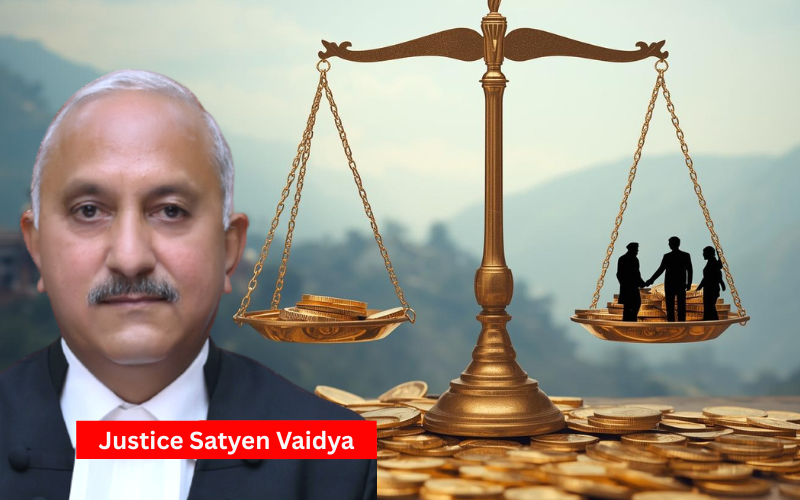Understanding the Implications of the Himachal Pradesh High Court Ruling on the Apportionment of Compensation under the National Highways Act, 1956
The judgment rendered by the Himachal Pradesh High Court addresses significant issues regarding compensation entitlement under the National Highways Act, 1956, specifically focusing on the apportionment of compensation for the development of land that was jointly owned. The judgment provides clarity on the legal principles governing compensation distribution among co-heirs of acquired property and examines the evidentiary standards required for proving entitlement to such compensation.
Background of the Case:
The dispute arose following the acquisition of land for the construction of the Kiratpur-Nerchowk Four-lane Highway. The land in question was originally owned by Gambho Ram, and upon his demise, his heirs inherited it. The compensation for the land was distributed among the heirs according to their respective shares. However, contention arose over an additional amount assessed for the development of the plot, amounting to Rs. 6,65,113/-. The competent authority initially determined that this compensation was solely for Rangi Ram, one of the heirs, prompting other heirs to challenge this determination.
Key Legal Issues:
- 1. Joint Ownership and Compensation Apportionment: The crux of the matter was whether the compensation for the development of the plot should be apportioned among all co-heirs, given their joint ownership. The court upheld the principle that compensation should be distributed according to the respective shares of the co-heirs, rejecting the notion that Rangi Ram was solely entitled to the development compensation.
- 2. Evidentiary Standards: The judgment emphasized the importance of substantiating claims with competent evidence. Rangi Ram's failure to produce the contractor or corroborative witnesses led to adverse inferences against his claim. The court highlighted the inadequacy of relying merely on document exhibition without proper witness examination to establish entitlement.
- 3. Estoppel and Section 3C: The petitioner argued that the respondents were estopped from claiming the compensation due to their failure to raise objections under Section 3C of the Act. The court clarified that Section 3C pertains to objections against acquisition notifications, not compensation claims, and the respondents were not estopped from seeking compensation for plot development.
Court’s Findings:
The court, after a meticulous examination of the evidence, found that the petitioner failed to prove his exclusive entitlement to the compensation. It noted the lack of corroborative evidence and witness examination that could substantiate the petitioner’s claims. On the contrary, the respondents provided credible evidence supporting their joint entitlement. Consequently, the court affirmed the appointment of the compensation among the co-heirs.
Significance of the Judgment:
This judgment underscores the importance of joint ownership rights in the apportionment of compensation under the National Highways Act, 1956. It reinforces the evidentiary requirements necessary to substantiate claims in compensation disputes, highlighting the need for comprehensive witness testimony and documentation. Furthermore, it clarifies legal misconceptions related to estoppel and objections under specific sections of the Act, thereby providing guidance for future disputes of a similar nature.
Conclusion:
The Himachal Pradesh High Court’s decision in this case serves as a vital precedent in the realm of land acquisition and compensation disputes, ensuring fair and equitable distribution among rightful claimants. It serves as a reminder for parties to diligently substantiate their claims with adequate evidence and adhere to procedural requirements when contesting compensation entitlements. The judgment is a testament to the judiciary's role in protecting the rights of co-owners and maintaining legal integrity in compensation determinations under Indian law.
Rangi Ram v. Jai Gopal, (Himachal Pradesh) : Law Finder Doc Id # 2743695




